
As soon as IGAD invites me to Djibouti, where its regional body has its headquarters, I can’t wait to discover what this country, situated on the Horn of Africa, has to offer. Bordering Ethiopia, Eritrea and Somalia with access to the Red Sea and Indian Ocean, I find it interesting that Djibouti people speak both Somali and French. However, the country’s official languages are Arabic and French. I am so happy that I get to strengthen my weak French, which ends up serving me quite well. I constantly converse with taxi men. All of them think that Kenya is so cool but dread the relationship between Kenya and Somalia.
My blog on the IGAD training at the Innovation Lab
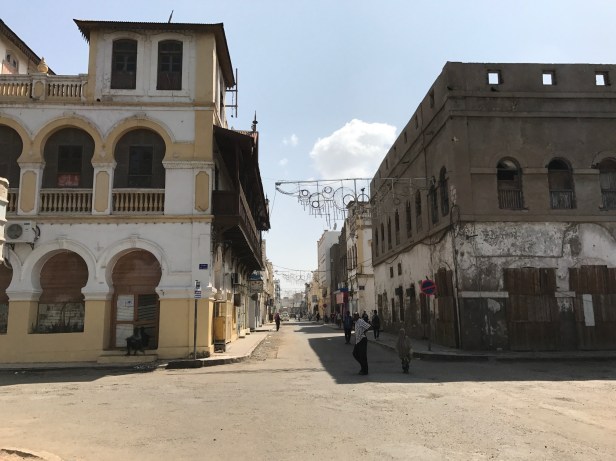
The country and city is known as Djibouti. In the 19th century, it was under the French Somaliland territory, after which it was renamed the French Territory of the Afars and the Issas. By 1977, Djiboutian people voted for independence, officially marking the establishment of the Republic of Djibouti, named after its capital city, which today has a population of around 530,000 accounting for over 70% of the country’s population. Not too many people in this small city but a lot you could do. Here goes:
Dress up and look out for the women
About 94% of all of Djibouti’s residents are Islamic so you better be covered up even though it’s terribly hot. Mean daily maximum temperature can go up to 41 °C but we are lucky it’s always about 33 °C when we’re there – what they call their winter 🙂
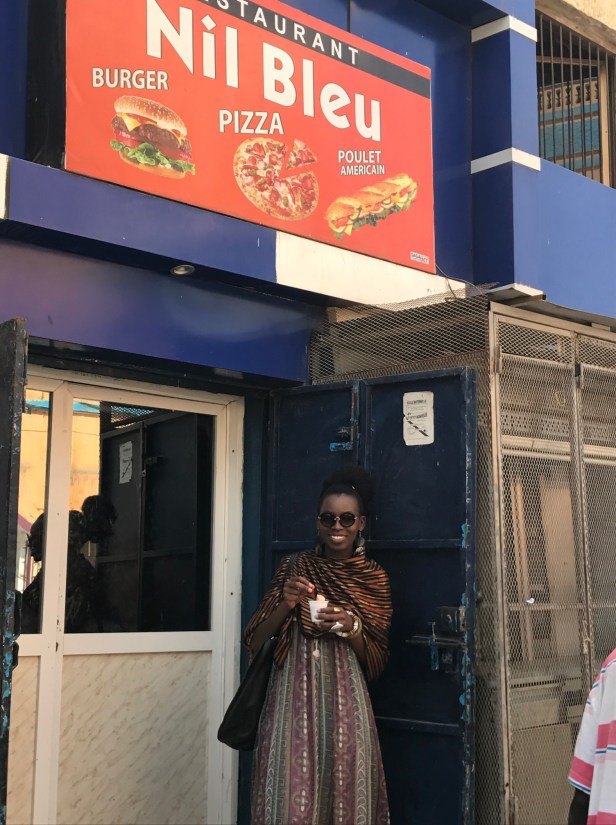
You will always be told to look out for the women of Djibouti. They are the exchange bureaus. For real! They just stand by the road and will come change your dollars into Djiboutian francs. Popular myth had it that the women of Djibouti ended up running this business because they were getting their booty’s solicited by foreign soldiers – who have set up a couple of military bases there.

The women and even taxi men will never steal from you or over charge you. For this reason, I find Djiboutians quite trustworthy.
Stay at Sheraton
It’s quite expensive to get around or live in Djibouti. It plays an important role in importing and exporting to neighboring Ethiopia; and maybe this and the fact that the country is located near one of the world’s busiest shipping lanes is why most products are imported. Probably.
Stay at Sheraton – the less expensive best option. It’s 200 USD per day full board and make sure you’ve got a room with a view of the Red Sea. Priceless! The hotel is quite serene and the staff is friendly.
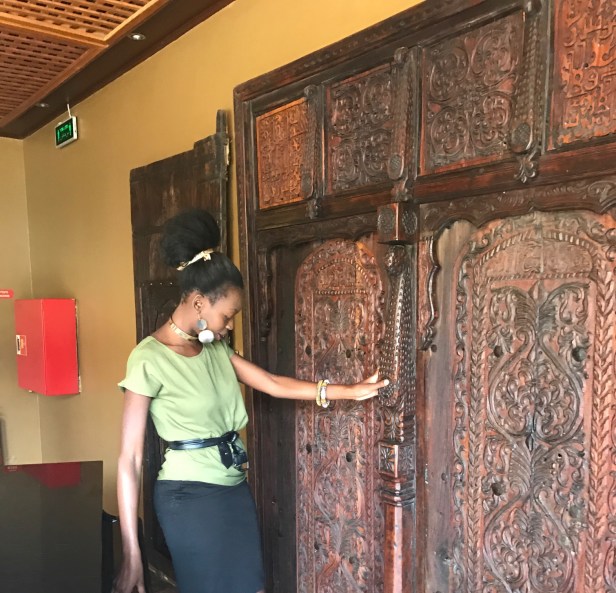
Look out for the expensive treasure of olden door and artifact pieces at the hotel’s lobby. A staff member tells me a story of their journey from Yemen and that they once belonged to a Queen.
If you’re lucky you can catch DJ Fahd playing at the hotel’s bar area. He’s a celeb – before this job he was playing keyboard for the Senegalese world music musician Ismael Lo.
Go see the sharks
Djibouti beaches are stunning. You can also see sharks while snorkeling in the Red Sea. The KEY WORD is CAN. It’s quite expensive to snorkel – about 400 USD and there is a chance that the sharks might not turn up like what happened to one of our colleagues who tried it.
Club at Menelik
Make sure you don’t fall for the ‘Buy two get one free’ trick at the club. We are so excited to club in Djibouti on the first night that when the waitress tells us of this offer we quickly fall prey but we end up paying about 300 USD in total for 3 bottles that should have cost about 210 USD. However, Menelik is dope! The mirrors on the dance floor and the DJs great mix of Somali – Djiboutian music and other East African hits amongst global releases creates a unique and unforgettable experience.
Visit Office of National Tourism
It’s in town, not too far from Menelik Hotel. I actually bump into it while taking a stroll in the city on one hot afternoon. Inside are two ladies – one only speaks French and the other one – very broken English but we manage to communicate.

They explain to me the history of Djiboutian nomadic people and their attire, which they are also selling here.
 I purchase a traditional beaded belt for a nomad’s loose white robe for my neck. I am afraid it’s something that should be kept here but they promise me that they will replace it soon.
I purchase a traditional beaded belt for a nomad’s loose white robe for my neck. I am afraid it’s something that should be kept here but they promise me that they will replace it soon.
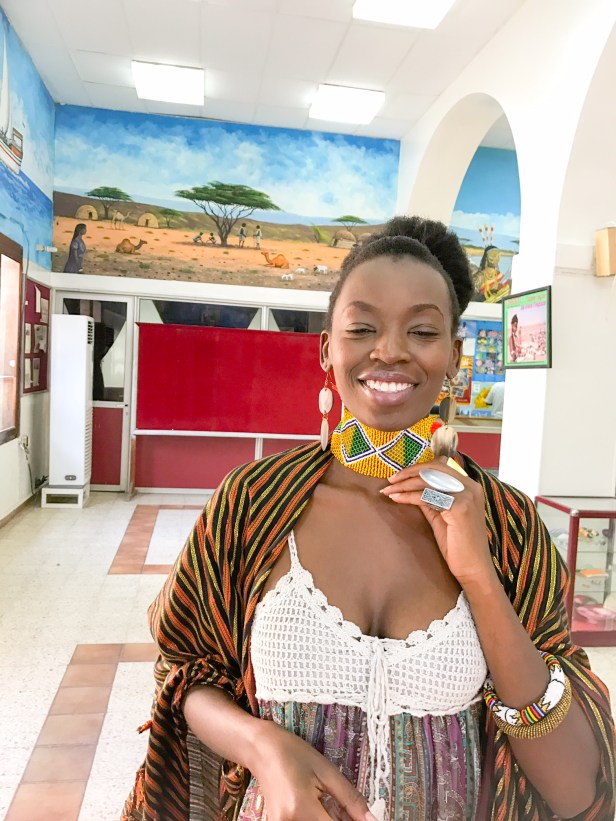
I also purchase a little round traditional Djiboutian dream chaser that should be hanged in the house. Their cultural things like mats and baskets are super colourful and beautiful.
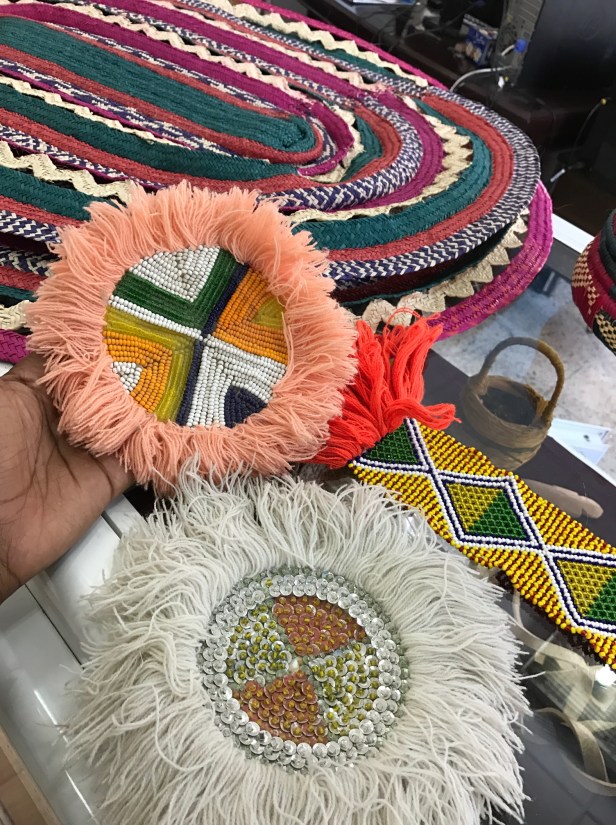
Sample Djiboutian + their Injera
Djiboutian food is so exotic! It’s a mix of Somali, Afar, Yemeni, French cuisine and South Asian. The local food has the right amount of spice and a sourish taste that reminds me of Czech cuisine. I loved their version of bhajjias, which they call something else like bhajji. I had the best Injera in Djibouti – and twice!
Read my blog about Czech Christmas Food
Even an Ethiopian at the IGAD workshop confessed that Djiboutian Injera is just as good as the best in Ethiopia.
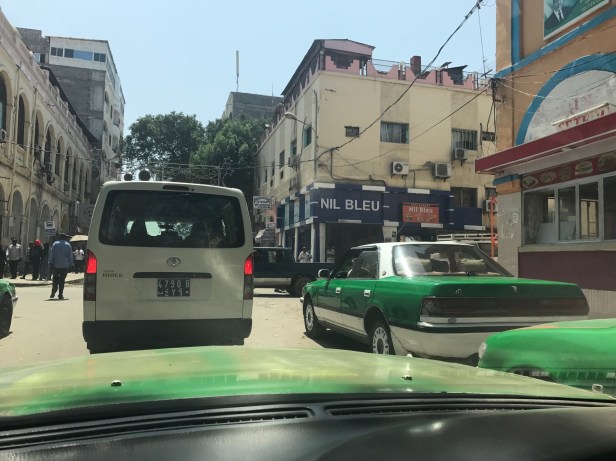
I discover a restaurant downtown that serves the best Injera you will ever eat in your life – Nile Bleu. And yes I ate it all myself – slurrrrp! 🙂

Have heard good things about Djibouti! Loved Mogadishu despite the danger, so if the beaches at Djibouti are anything like what I saw in Somalia, would LOOOOVE to go snorkeling there! And injera is what of my favourite dishes! Look forward to sampling that there!!
I would love to go to Djibouti and that Injera *noms*